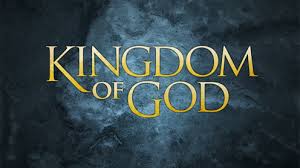 When Christ began His earthly ministry, the message He preached was clear: “Repent: for the kingdom of heaven is at hand” (Matthew 4:17; 9:35). His preaching, which was in conjunction with His work recorded in the four gospels, forms the historical basis of the kingdom message. At the end of each gospel we read Christ’s commission to the church to take the kingdom message into “all the world” (Matthew 28:18–20; Mark 16:14–18; Luke 24:44–49; John 20:19–23). Matthew’s account is the most comprehensive declaration of what, in effect, is the mission statement of the church.
When Christ began His earthly ministry, the message He preached was clear: “Repent: for the kingdom of heaven is at hand” (Matthew 4:17; 9:35). His preaching, which was in conjunction with His work recorded in the four gospels, forms the historical basis of the kingdom message. At the end of each gospel we read Christ’s commission to the church to take the kingdom message into “all the world” (Matthew 28:18–20; Mark 16:14–18; Luke 24:44–49; John 20:19–23). Matthew’s account is the most comprehensive declaration of what, in effect, is the mission statement of the church.
We call this the Great Commission because of the greatness of the task and also because of the assurances attached to it. We are to go to all nations teaching all truth with promises equal to the demands—all power for all time. The power that Christ spoke of here was “given” to Him for a specific purpose—to rule His kingdom as mediatorial king. This kingdom ruled by Christ is the hinge upon which Scripture turns. It is the focus of Old Testament expectation and the objective of New Testament engagement.
The revelation of Christ’s authority is seen in the context of conflict and strife. The image in Revelation 12 supplies the panorama of the kingdom of Christ on earth and provides an insightful and encouraging context for the Great Commission. Christ’s authority is given in the context of the conflict of the ages. The vision that John saw was of a woman travailing in childbirth—the Old Testament church. As the woman travails in labor to deliver “a man child who was to rule all nations” there appears a “great dragon” that is identified as that “serpent of old” (verse 9) from the Garden of Eden infamy. As the scene unfolds the woman delivers her child—the Messiah—and then flees into the wilderness. In the wilderness the woman—now the church of the New Testament—is persecuted by Satan but nourished by God (6, 13ff; cf. Psalm 23:5). When the child is born there is a great conflict (7–12) and the child is “caught up unto God, and to his throne” (5).
From the first gospel promise in Genesis 3:15 the Old Testament anticipates a time when the “seed of the woman” will crush the head of the serpent. Kingdom language is introduced early in the revelation when Jacob prophesies that the authority to rule would not depart from the tribe of Judah “until Shiloh come” (Genesis 49:10). Psalm 110 adds that Jehovah will send his “strength out of Zion” (from the midst of the Old Testament church), that He will “rule in the midst of his enemies,” and that as He builds His kingdom He would sit at the right hand of the Father, until, Jehovah says, “I make thine enemies thy footstool” (verse 1).
In 1 Corinthians 15:24–28 Paul references Psalm 110 when he speaks of the consummation of the kingdom and a time when Christ would give back (deliver up) the authority to the Father after Christ has “put down all
This article first appeared in the LTBS Quarterly, December 2013, under the title; Jesus: A Mediator With Authority.

[…] a previous blog I presented an overview of the biblical data on the Kingdom of Christ. Let’s consider now the […]
[…] have considered a biblical overview and a theological overview and we have seen that the Kingdom of Christ was anticipated in eternity […]